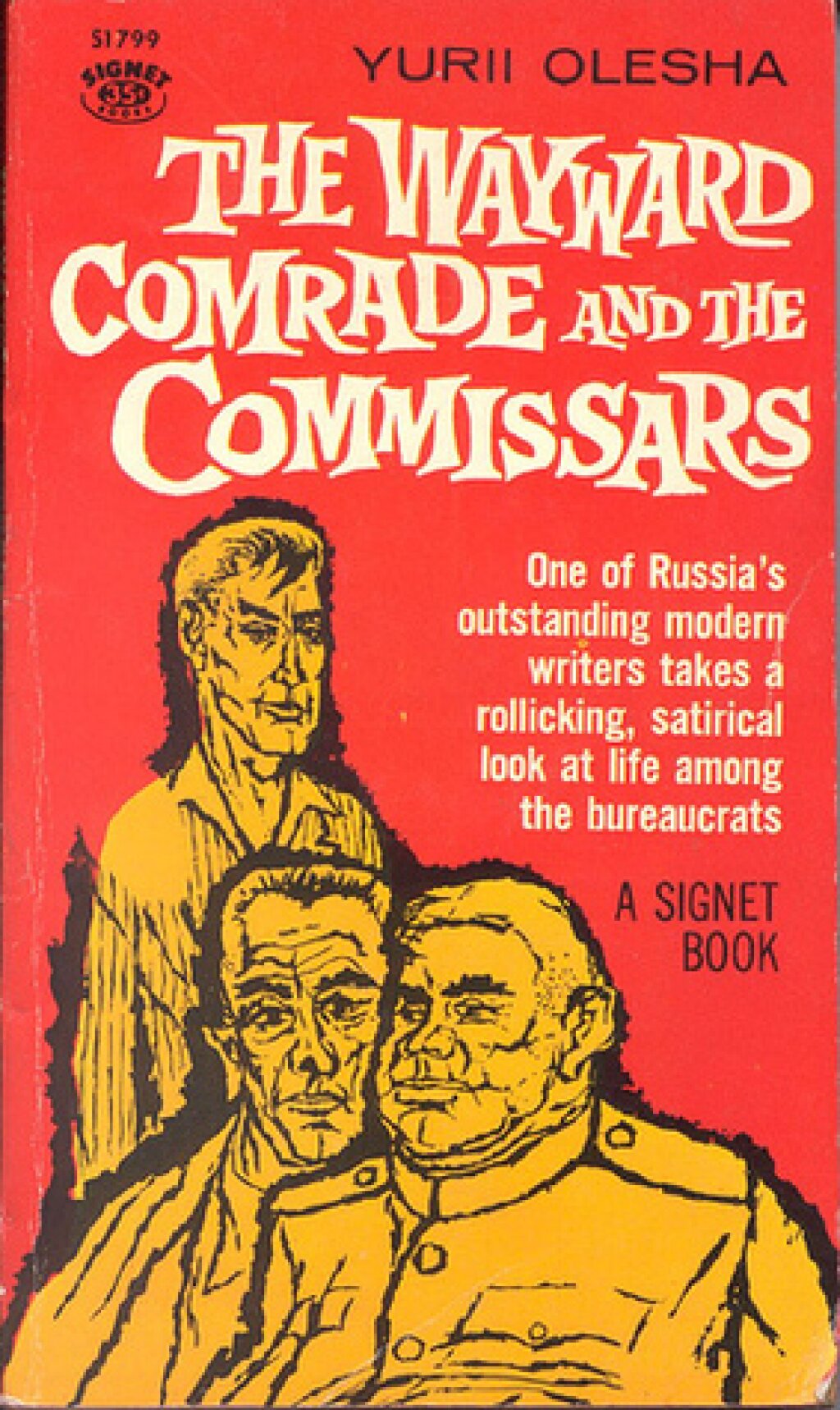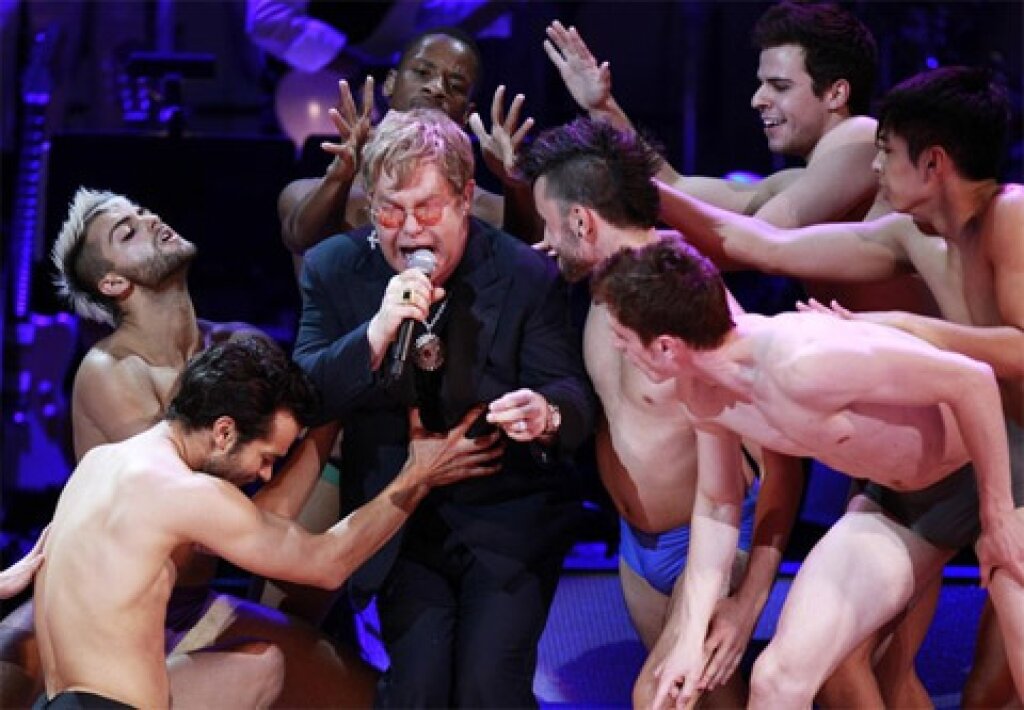This is the seventeenth entry of Russia’s Alien Nations: The Secret Identities of Post-Socialism, an ongoing feature on All the Russias, as well as the fourth entry of Chapter 1. It can also be found at russiasaliennations.org. You can also find all the previous entries here.
Bulgakov satirized the New Man by imagining him as a kind of Frankenstein’s monster: with no real biological parentage, the New Man was a New Mutt resulting from the dubious social/scientific experiments of the class that conceived the Russian revolution: the intelligentsia. Mayakovsky projects the genealogical problem forward, with Prisypkin’s prospective father-in-law imagining him as the guarantor of the next generation’s social status and well-being, while the denizens of the far future look at him as a terrifying missing link. In Envy, Olesha sticks firmly within the ten-year-time postrevoutionary frame of his 1927 publication in order to ponder just how New Men are made (“When a vanguard party and a proletariat love each other very, very much…") and who they actually are.
Olesha’s New Man is only briefly given his own words and his own point of view, and even then it is in a letter accidentally stolen by his rival. Instead, he remains something of an anthropological curiosity to those who are unable to share in his New-ness, an object of desire, admiration, and, of course, envy. The first half of the novel is narrated by Nikolai Kavalerov, a twenty-seven-year-old man who, despite his youth, is anything but new. An outsider quite literally looking in (into windows, into mirrors, onto soccer fields), Kavalerov has recently been taken in by Andrei Babichev, an older, overweight Food Trust functionary who found him lying drunk on the street. Andrei is working towards the complete transformation of everyday life, from the construction of superkitchens that will turn the family kitchen into a historical relic to the recipe for the perfect sausage to feed the laboring masses.
Structurally, Envy is a family drama, or even a melodrama: Andrei Babichev has a brother, Ivan, his ideological opposite (or as opposite as one gets in the absence of actual political counterrevolution). Appalled by his brother’s “New World” and its assault on sentimentality and the domestic sphere, Ivan proposes a “conspiracy of feelings” to counter drab revolutionary rationalism. Ivan’s daughter, Valya, runs away from him and his mad ideas, to be protected by her uncle Andrei (who puts her up in an apartment). Andrei had also taken in another stray: prototypical New Man Volodya Makarov, an accomplished athlete and would-be “Edison of the New World,” who clearly has a bright future. It is only when Volodya is out of town that Andrei happens upon the drunken, homeless Kavalerov, offering him the couch that he neglects to mention is normally occupied by Volodya. Envious of Andrei’s success, Kavalerov is driven to fury by the prospect of eviction upon Volodya’s return. After storming out, Kavalerov meets Ivan, joins Ivan’s “cause” (more on this below), and is encouraged to kill the man who wronged him (Ivan doesn’t know that the man in question is his own brother). Ivan and Kavalerov soon encounter Valya, and Ivan drops to his knees and abandons his crusade. Kavalerov goes to the soccer match between the Soviets and the Germans, in which Volodya is the home team’s star player. Utterly discouraged, he leaves the game before it is over, gets drunk, sleeps with his slatternly landlady Annushka, only to find Ivan is there with them, offering a toast to indifference, and proposing that the two men now get to take turns having sex with Annushka. The end.
What makes this tawdry plot so compelling, indeed, what actually drives it, is the explicit understanding on the part of all the men involved—Kavalerov, both Babichevs, and Volodya—that everything about their domestic arrangements can only be interpreted in light of the conflict between the Old World and the New, waged between the New Men and their neanderthal-like pre-Socialist precursors. At 27, Kavalerov seems to think of himself as roughly the right age to be the New Man (although, technically, he’s a bit too old), but blames his miserable existence on a world that has no room for his aesthetic insights and his personal point of view. He is as he says, “as old as the century,” in comparison to Volodya and Valya, whose exact ages are not specified, but who are coded as young in way that Kavalerov is not. By contrast, Andrei Babichev, indisputably too old be the New Man, is nevertheless part of the movement that gave him life (with all the androgynous/Frankensteinian implications this suggests, as I discuss at too great a length in Men without Women). After a brief crisis of doubt, when Andrei wonders how he can have paternal feelings in this new, post-familial world, he doubles down on this connection across male generations, allowing himself a typically parental pride in his “offspring.”
Ivan, though belonging to the same generation as Andrei, looks backwards rather than forward, paradoxically projecting onto his daughter (a member of the younger generation) all the romantic qualities of a bygone era. But Valya chooses Andrei and Volodya over her own father (and, in Kavalerov’s mind, over Kavalerov himself, even if she doesn’t know of his existence). Volodya and Valya’s qualities as “New People” are frustratingly generic: their physical health, optimism, atheticism, and Volodya’s focus on the practical sciences. In fact, despite the number of ways in which Volodya is held up as a model of new masculinity, both he and Valya suffer from a socialist version of the “terrible perfection” Barbara Heldt identified as the defining flaw of nineteenth-century Russian heroines: they are chronically underdescribed paragons of virtue.
Olesha’s most important contribution to the idea of the “New Man” was not his depiction (a task at which the author repeatedly proved unfit), but his discursive framing. In the absence of a fully fleshed-out New Man, Olesha gives us unparalleled access into the minds of the people who are obsessed with the New Man ideal. In Envy, despite how much the New Man is meant to be desirable, that desire is always tainted (i.e., turned into envy) by the anxieties that the very phenomenon instills in those around him. Olesha’s New Man exists not as a person, but as an ambulatory reality distortion effect, given power by the libidinal energy invested in him by others.
Next: The New Soviet Man and His Gerontologist



